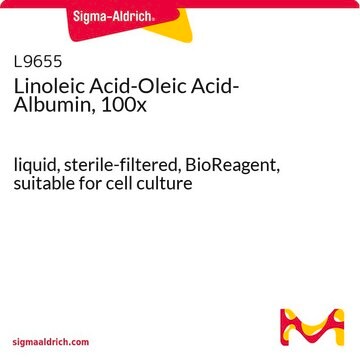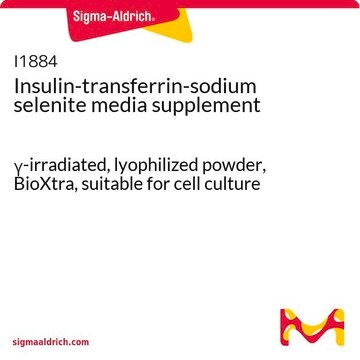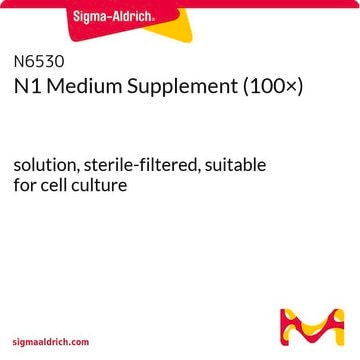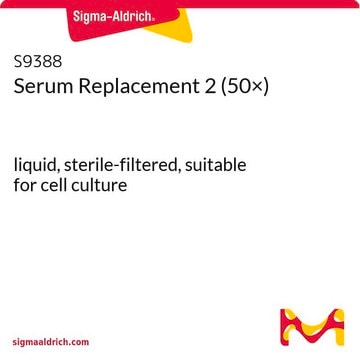I2771
ITS+3 Liquid Media Supplement (100×)
liquid, sterile-filtered, BioReagent, suitable for cell culture
Synonym(s):
ITS Supplement
About This Item
Recommended Products
sterility
sterile-filtered
product line
BioReagent
form
liquid
technique(s)
cell culture | mammalian: suitable
impurities
endotoxin, tested
shipped in
ambient
storage temp.
2-8°C
General description
Application
- to support the growth of human adipose stem cells (ASC)
- to culture porcine intervertebral disc (IVD) cells and tissues
- to culture cartilage endplate (CEP) cells
Biochem/physiol Actions
- Insulin: a polypeptide hormone that promotes glucose and amino acid uptake and may produce a mitogenic effect.
- Transferrin: an iron-transport protein. Iron is an essential trace element but can be toxic in its free form. To nourish cells in culture, iron is supplied bound to transferrin in serum.
- Selenium: an essential trace element present in serum.
Components
Preparation Note
Storage Class Code
12 - Non Combustible Liquids
WGK
WGK 1
Flash Point(F)
Not applicable
Flash Point(C)
Not applicable
Personal Protective Equipment
Certificates of Analysis (COA)
Search for Certificates of Analysis (COA) by entering the products Lot/Batch Number. Lot and Batch Numbers can be found on a product’s label following the words ‘Lot’ or ‘Batch’.
Already Own This Product?
Find documentation for the products that you have recently purchased in the Document Library.
Customers Also Viewed
Articles
Importance and uses of linolenic acid in serum-free eukaryotic, including hybridoma and Chinese Hamster Ovary (CHO) cell, cultures
Understand the role of selenium in cell culture media formulations. The Media Expert library explains how culture media ingredients support cell growth.
How palmitic acid, other fatty acids and other cell culture components affect the performance of serum-free, protein-free cell culture systems used for biomanufacturing heterologous proteins including monoclonal antibodies.
Importance and uses of linoleic acid in serum-free eukaryotic, including hybridoma and Chinese Hamster Ovary (CHO) cell, cultures
Our team of scientists has experience in all areas of research including Life Science, Material Science, Chemical Synthesis, Chromatography, Analytical and many others.
Contact Technical Service









